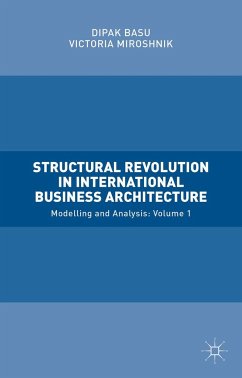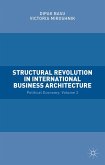Most of the established theories of economics, particularly of international trade, became obsolete in the new world trade and production architecture. How, in these new circumstances, will host nations organize their economic resources?
Structural Revolution in International Business Architecture analyzes some prominent countries in the world to examine the issue from two specific points of views. The first is to answer the question of whether it was necessary to dismantle the old system and privatize the economy rather than utilizing the traditional stabilization policy through monetary and fiscal instruments, when crisis appeared in the late 1980s and early 1990s mainly due to the demise of the Soviet Union and the Eastern European economic union causing serious disruptions in world trade, and the resultant war and destructions in various parts of the world. The second objective is to examine whether there was any alternative way. In this book, in the analysis of the recent globalization, the authors have used the simulations of economy-wide models to analyze alternative policy frameworks for the economies of the UK, China, India, Nigeria, and Egypt to re-examine the relative merits of alternative economic and trade policy regimes, through economy-wide models.
Structural Revolution in International Business Architecture analyzes some prominent countries in the world to examine the issue from two specific points of views. The first is to answer the question of whether it was necessary to dismantle the old system and privatize the economy rather than utilizing the traditional stabilization policy through monetary and fiscal instruments, when crisis appeared in the late 1980s and early 1990s mainly due to the demise of the Soviet Union and the Eastern European economic union causing serious disruptions in world trade, and the resultant war and destructions in various parts of the world. The second objective is to examine whether there was any alternative way. In this book, in the analysis of the recent globalization, the authors have used the simulations of economy-wide models to analyze alternative policy frameworks for the economies of the UK, China, India, Nigeria, and Egypt to re-examine the relative merits of alternative economic and trade policy regimes, through economy-wide models.








